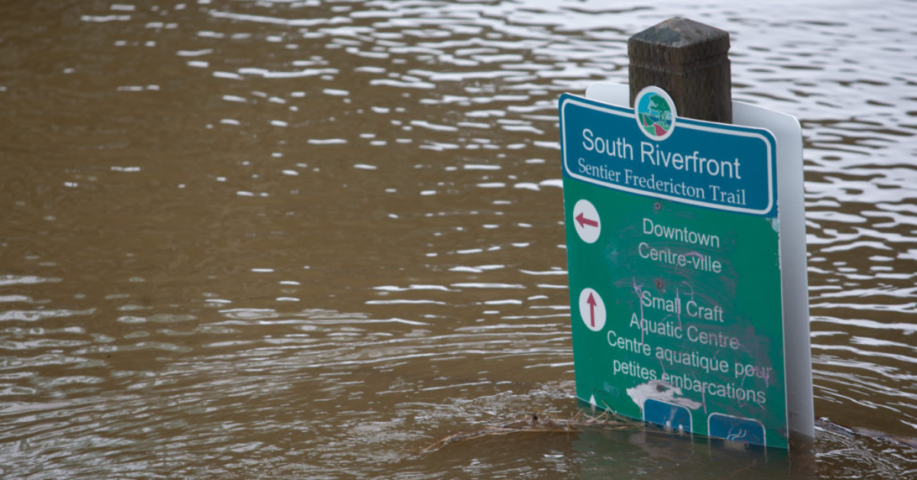Unceded and unsurrendered Wolastoqey/Mi’kmaq/Peskotomuhkati territory/Fredericton — The City of Fredericton has made progress on flooding preparedness over the past four years, but important work remains to better protect citizens’ health and well-being in the face of increasingly severe flooding fueled by climate change, according to a new national study.
The study from the University of Waterloo’s Intact Centre on Climate Adaptation, released Feb. 18, assessed flooding preparedness for 16 major cities in Canada. The authors rate preparedness on criteria such as emergency management, flood risk assessment, land use planning, and residential prosperity risk mitigation, among others.
Fredericton’s rating changed from ‘C’ in 2015 to ‘B-’ in 2019/20, one of only a few cities to show improvement.
The Conservation Council’s Dr. Louise Comeau congratulates Fredericton for improving its overall score, but notes important work remains to further protect citizens and homeowners from the cost, both physical and mental, of extreme flooding—especially in light of back-to-back historic floods in 2018 and 2019.
In particular, Comeau says Fredericton should introduce programming to help homeowners install backflow valves, as Moncton has done. The Capital City is installing backflow technology on its sewer lines—a smart move—but citizens should also be supported in flood proofing their homes.
“Fredericton is fully aware that a changing climate risks the health and well-being of its citizens. Best-in-class climate protection programming now integrates mitigation and adaptation, energy and nature-based solutions into one plan, and brings climate change decision-making into the core of policy, risk and asset management and land-use development,” says Comeau, Director of the Conservation Council’s Climate and Energy Solutions program.
“This is how we protect the health and well-being of our citizens in a changing climate.”
Nationally, the study shows that many cities have made little progress to limit their risk of flooding over the past five years. The 16 municipalities surveyed scored an average ‘C+’ in flood-readiness in 2019/20 — the same score a near-identical study found in 2015.
Dr. Blair Feltmate, co-author of the study and head of the Intact Centre, says the general lack of readiness means large scale flooding alongside the COVID-19 pandemic would be “catastrophic.”
Important links:
- Read the full report
- Read the Intact Centre’s press release.
- Learn more about climate change impacts in New Brunswick.
- See our infographic on flooding preparedness in N.B.
- Learn about how flooding and climate change is already affecting New Brunswickers’ physical and mental health.
-30-
For more information or to arrange an interview, contact:
Jon MacNeill, Communications Director, Conservation Council of New Brunswick | jon.macneil@conservationcouncil.ca | 506-238-3539

